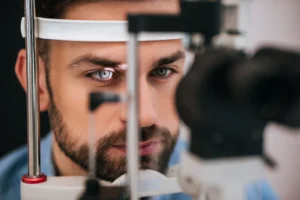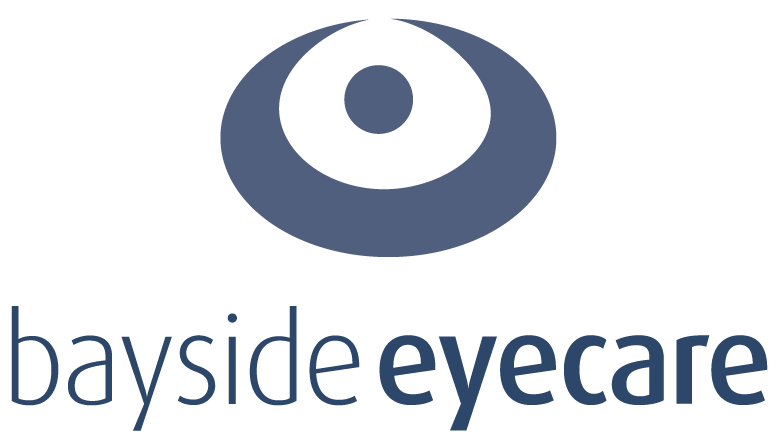Eye health affects our ability to learn, work, and navigate life, so maintaining your vision is paramount in ensuring a better quality of life. From detecting vision changes to diagnosing eye diseases early, the health of our eyes is a critical aspect of our general health that should never be overlooked. Within the realm of eye care, two main types of professionals play integral roles: optometrists and ophthalmologists. Each offers unique services and expertise, catering to different aspects of eye health and vision care. Understanding the differences between an Optometrist vs ophthalmologist is vital for individuals seeking appropriate care, as it can greatly influence the management and outcome of eye health issues.

Optometrist vs Ophthalmologist:
What is an Optometrist?
Role
Optometrists serve as the primary eye care providers, focusing on routine eye checks and vision health. They are trained to conduct comprehensive eye exams, as well as diagnose and manage various visual conditions and eye diseases.
Education
The pathway to becoming an optometrist in Australia involves completing a university degree in optometry, which includes three years of undergraduate studies followed by a four-year Doctor of Optometry program. This extensive education equips them with the necessary knowledge and skills to care for your eyes.
Services
- Routine Eye Exams: Conducting detailed assessments to evaluate vision and eye health, ensuring early detection of potential eye conditions.
- Prescription of Glasses and Contact Lenses: Determining the need for corrective lenses to address vision issues such as myopia (nearsightedness) and hyperopia (farsightedness).
- Diagnosis and Management of Eye Diseases: Identifying conditions like glaucoma, cataracts, and macular degeneration, and providing non-surgical treatment options.
- Emergency Eye Care: Offering immediate care for urgent issues such as eye infections, foreign objects in the eye, and acute visual changes.
- Vision Therapy: Providing specialised treatment plans aimed at improving visual skills and addressing issues with eye coordination and focus.
What is an Ophthalmologist?
Role
Ophthalmologists are medical doctors who specialise in eye and vision care, including medical, surgical, and preventative measures. They are qualified to handle complex eye diseases, perform eye surgery, and offer advanced medical treatments.
Education
To qualify as an ophthalmologist in Australia, one must first complete a medical degree, followed by several years of specialised training in ophthalmology. This includes a minimum of five years in a postgraduate ophthalmology training program, culminating in certification by the Royal Australian and New Zealand College of Ophthalmologists (RANZCO).
Services
- Surgical Interventions: Performing operations like cataract removal, glaucoma surgery, and refractive surgery (e.g., LASIK) to correct or treat vision problems and eye diseases.
- Medical Treatment of Eye Diseases: Prescribing medication, including oral medications and prescription eye drops, to treat a variety of eye conditions.
- Comprehensive Eye Exams: Conducting detailed evaluations not only to prescribe glasses and contact lenses but also to diagnose and treat more severe eye diseases.
- Specialised Care for Complex Eye Conditions: Offering expert management for conditions like diabetic retinopathy, macular degeneration, and ocular oncology.
- Emergency Eye Care: Providing immediate treatment for acute eye injuries and serious eye conditions requiring surgical attention.
Optometrists versus Ophthalmologists: Key Differences
In Australia, the scope of practice distinctly sets apart optometrists and ophthalmologists. Optometrists focus on primary eye care, providing comprehensive eye exams, prescribing glasses and contact lenses, and offering non-surgical treatments, including eye drops. Conversely, ophthalmologists deliver both medical and surgical eye care, with the ability to prescribe a broader range of medications, including oral treatments for complex eye conditions.
Typically, optometrists manage common visual problems and monitor the health of the eyes, stepping in for early detection and management of eye diseases. On the other hand, ophthalmologists treat more severe eye conditions that may require surgical intervention or specialised medical treatment.
When specific or advanced care is needed beyond their scope, optometrists refer patients to ophthalmologists. This referral process ensures that patients receive specialised care for conditions like cataracts, glaucoma requiring surgery, or retinal issues, facilitating a collaborative approach to eye health and vision care.
Bayside Eyecare is Here for Your Optometry Needs
Understanding the distinct roles of optometrists and ophthalmologists will help you navigate eye care more effectively. This knowledge ensures that you seek the right professional for your specific eye health needs, whether it’s for routine eye examinations, management of eye conditions, or surgical interventions. Prioritising eye health is a vital step towards maintaining your overall well-being and quality of life.
If you’re looking to take the first step towards optimal eye health, Bayside Eyecare is here to guide you. Our dedicated team of optometrists is committed to providing comprehensive eye examinations and personalised care to address your unique needs. Get in touch with our friendly team for advice or to schedule an appointment via our online form or by giving us a call on (03) 9909 5329.
FAQs
- What is the main difference between optometrist and ophthalmologist?
Put simply, optometrists provide primary eye care and non-surgical treatments, while ophthalmologists can perform eye surgery and offer comprehensive medical eye care.
- How often should I visit an optometrist?
It’s recommended to have a routine eye exam with an optometrist at least once every two years, or more frequently if advised.
- Can optometrists prescribe glasses and contact lenses?
Yes, optometrists are qualified to prescribe and fit glasses and contact lenses to correct vision problems.
- Do I need a referral to see an ophthalmologist?
In most cases, you will need a referral from an optometrist or GP to see an ophthalmologist for specialised eye care.
- Can ophthalmologists treat eye infections?
Yes, ophthalmologists are trained to diagnose and treat eye infections, including prescribing medication.

 (03) 9596 1238
(03) 9596 1238


